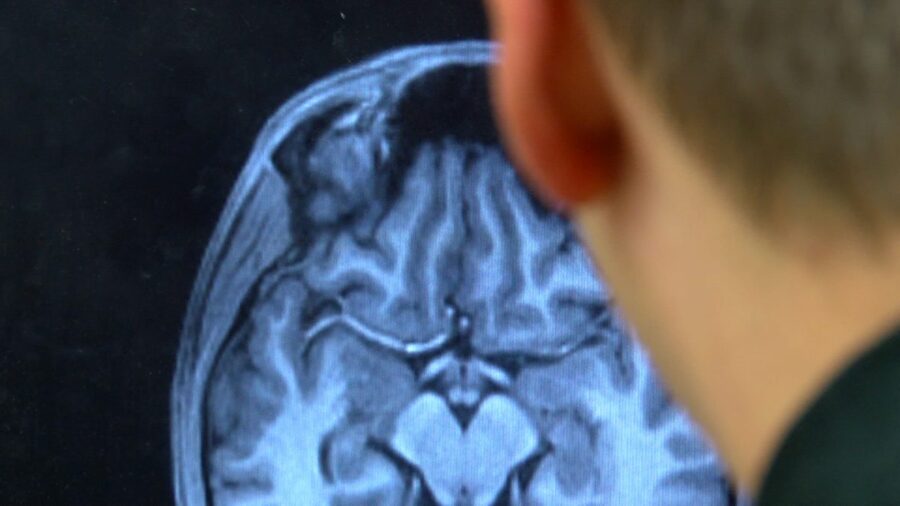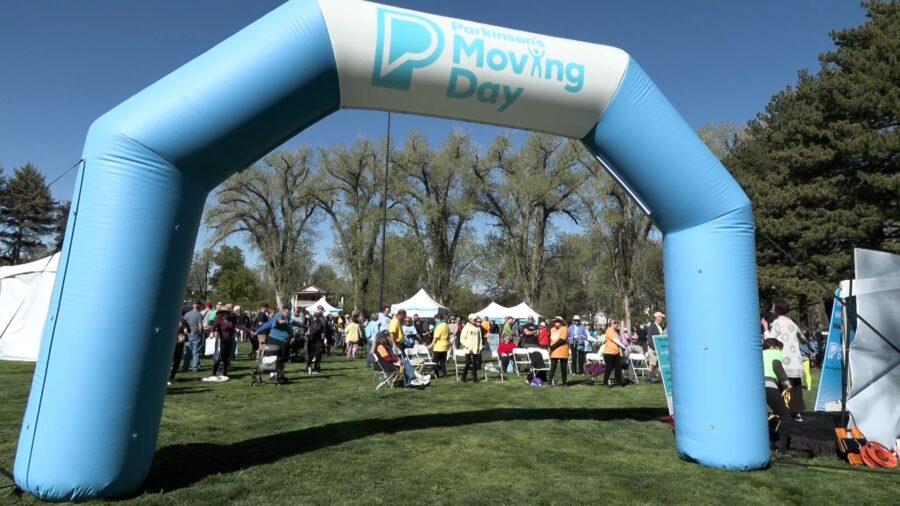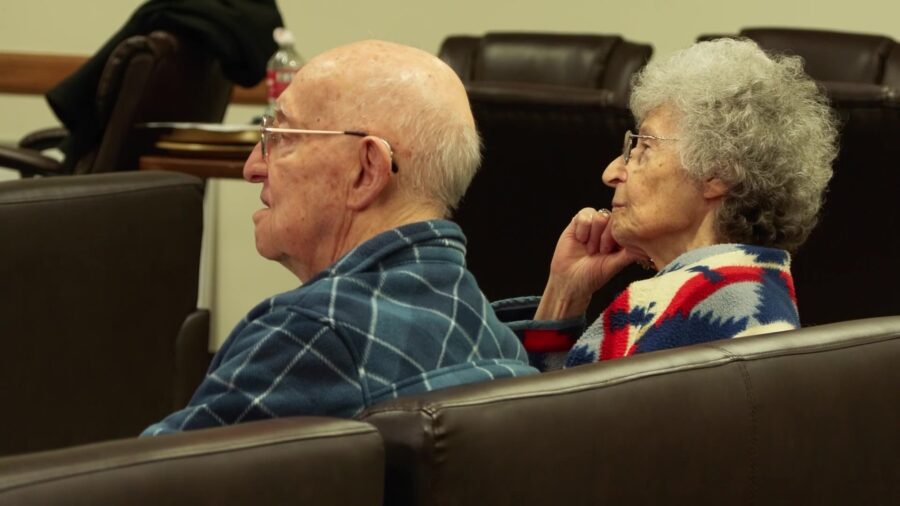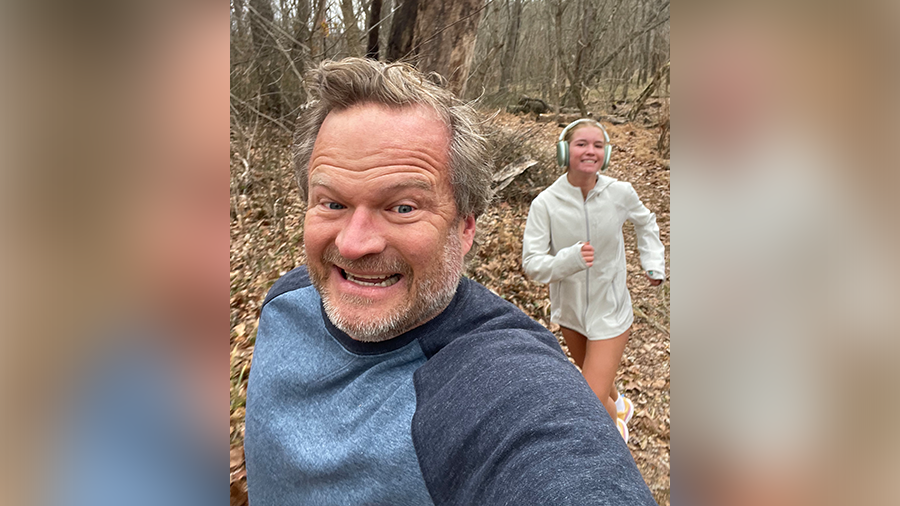The man who walked backward
Feb 26, 2023, 10:44 PM | Updated: Feb 28, 2023, 2:52 pm
SALT LAKE CITY — Parkinson’s disease, now perhaps more prevalent than once thought, is a disease that often hides in plain sight. Many patients and doctors say to keep their diagnoses secret, sometimes for years.
Passing Chiara Del Monaco while she’s out walking her dog, you wouldn’t know she has Parkinson’s disease or PD.
To her, though, the disease is painfully obvious.
Six years ago, Del Monaco, an avid runner and climber felt her body and her brain slow down. She could no longer run 10 miles at her usual 6-minute 30-second-a-mile pace. She had a hard time finding her words.
“I had…a busy family. We had three teenagers, and my husband and I (were) both working and (we had) two dogs. And I just felt, like, intense fatigue. Like, my thoughts weren’t organized. My body, half my body [PD usually affects, at first, one side of the body], wasn’t strong,” she explained. “It was such a monumental task to go to the supermarket.”
Doctors initially called it depression, but two years ago, it was diagnosed as Parkinson’s.
At first, Del Monaco told only her sisters and a few close friends. She says she was embarrassed by her symptoms by losing her words during presentations at work.
“The cognitive changes are really embarrassing for me, you know,” she said.
There was shame.
“The shame is that I can’t work myself out of it, that I’m sorry that it’s with me,” Del Monaco expressed.
Intermountain Health neurologist Kathleen McKee said it’s not uncommon for patients to keep PD secret.
She said a lot of people, when they think of PD, imagine patients in the later stages of the disease – shaking with tremors and unable to walk.
“When in reality, patients can have many decades of good function after an initial diagnosis,” McKee explained. “They (patients who hide their PD) don’t want people to judge them or make assumptions about them which may be incorrect.”
Retired British sportscaster Dave Clark said when he was diagnosed a dozen years ago, he was devastated.
The only person he’d known with PD was his father, Alan. The elder Clark had been a salesman in northern England. Because of the stigma associated with the disease, he’d kept the diagnosis from everyone, even his children.
“The stigma of it was weighing heavy on him. I think he didn’t want to be seen as disabled,” Dave said.
Alan Clark ate dinner alone in a separate room, so no one could see his body shake. He stayed up late doing paperwork because it was so difficult for him to write. Because of his slurred speech, he was accused of being drunk at work and eventually lost his job.
“I think he thought he’s failed us by being ill, you know. But that’s ridiculous,” Dave said. “He lost all his dignity. He lost his will to live.”
When Dave Clark was 17, his father died by suicide.
“I think he thought he’s doing the right thing. And it just, it just wasn’t, you know. It’s just the wrong thing to do,” he said. “When I was diagnosed, I thought, ‘I can’t be like my dad,’ you know, ‘I’ve got to change. I’ve got to be different.'”
After a particularly hectic and tiring sports broadcast, Dave decided to go public and wrote an article for the Daily Mail. He received 6,000 messages of support from everyone, from fans to well-known athletes.
“It just made me feel amazing, you know. I kept it secret for so long. It’s just such a weight off my shoulders,” Dave expressed.
McKee said on an individual level, it might make sense to hide the diagnosis, but “as I think about the broader Parkinson’s community and what we need to do to try and end this disease, it may make sense for people who have the disease to be more public. It may raise awareness of the frightening rise of this disease and may help to catalyze a movement. We need more funding for research.”
I know something about Parkinson’s because I was diagnosed with PD in 2014. That year, my son was diagnosed with leukemia; he received chemotherapy and is now cancer-free. My father was diagnosed with Alzheimer’s, and I was diagnosed with Parkinson’s. In order to preserve a sense of normalcy for myself and my kids during that trying time, I kept it mostly to myself.
Now, though, I think the energy expended hiding symptoms is best spent elsewhere.
I usually don’t have a visible tremor, although I often feel internal tremors on my right side, which to me feels like I’m a vibrating electric football tabletop game.
I have a lack of dexterity in my right hand. I typed much of this story and edited much of the accompanying video story with my left hand, even though I’m right-handed. My handwriting can often become illegibly small.
I sometimes exhibit aphasia, that difficulty finding words.
I experience some anxiety.
I sometimes have stiffness in my limbs and a limp.
I have trouble sleeping.
I sometimes have dystonia, a painful kind of cramping in my right foot, which I can circumvent by using a cane or, oddly, by walking backward. Somehow, McKee says, this helps me access the motor circuitry in the same way a Dutch patient cited in a research paper and seen on the internet couldn’t walk but could ride a bike.
At first, when I would use this backward walking trick, I felt very self-conscious. I would pretend I was walking backward for a more “normal” reason, say, to see what was going on behind me.
Now if anyone asks why I’ll say, “I’m walking backward to move forwards because I have Parkinson’s disease.”













